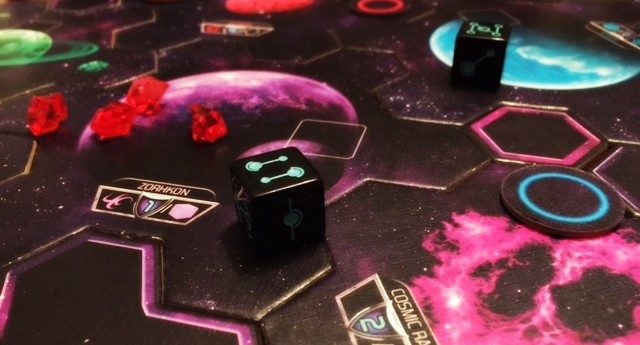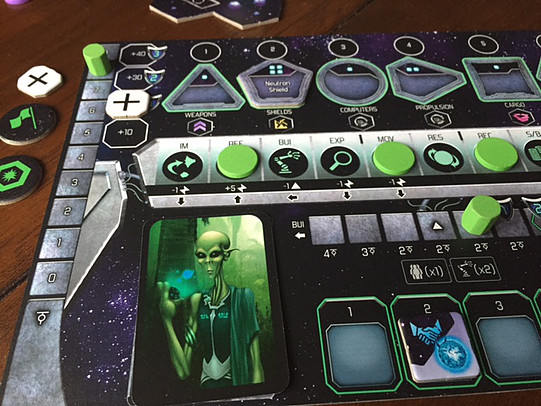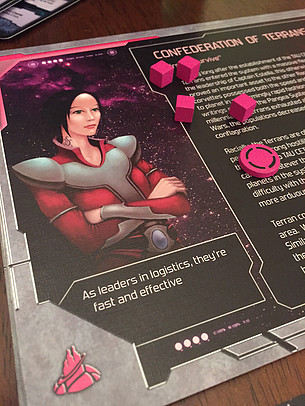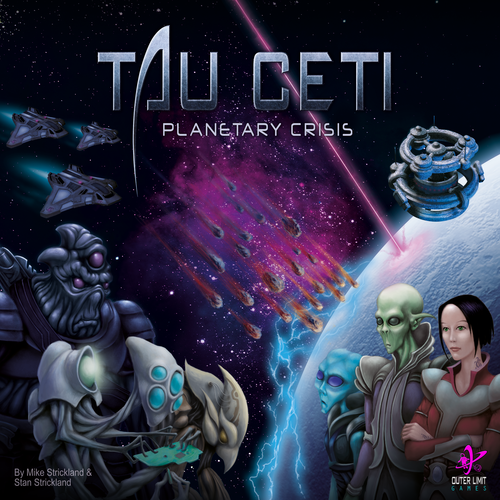As part of our June Spotlight on Tau Ceti: Planetary Crisis, we strive to inform readers of little extra tidbits surrounding the game. Games are made by people, and one of those tidbits we enjoy is learning a little bit more about the people behind them. Some designers shy away from the public stage, while others enjoy being front and center.
In the case of Tau Ceti, the process of finding the time to chat with someone who had a hand in crafting an interstellar alliance of planets can be tricky. Logistics of the vastness of space aside, anyone who is capable of making a Federation-esque system is going to be pressed for free time with lowly Earthlings such as ourselves. As such, there’s been a lot of subspace communications back and forth to make our conversation with just one of the three architects of such a feat happen, being Joseph Pilkus, Mike Strickland, and Stan Strickland.
And honestly, you don’t want to know how much the long distance calls ended up costing us. You think calling Europe is bad? Try 12 light-years away. Even then half the time we ended up on hold or made small talk with Janice at the chancellor’s office.
But we digress.
Eventually we located Mike, and he graciously provided a few minutes of his time to talk about why he decided to move over 3 parsecs away. It seemed a bit drastic even by wanderlust standards, so we were curious about what brought on the desire for change.
In the game of Tau Ceti, players are members of various alien races, each of whom have seen better days. Downtrodden, each faction was mysteriously drawn to this star system, and in doing so, ended up forming an alliance with one another for mutual prosperity. As often is the case with 4X games, however, not all is well. Numerous external crises are affecting the alliance, fracturing trusts and causing general unease. Over a series of rounds, players must navigate the regions around Tau Ceti, investigate various anomalies, and hopefully resolve some of these crises affecting the region before everything supernovas into full-scale unrest.
It’s no small feat, and we really wanted to report back on how things were going out there. Luckily the last transmissions with Mike have finally been transcribed, and we can finally share what we learned about our next door neighbors in the galaxy. Enjoy!
Round One Questions
CR: What was your Gateway Game?
I’d have to say Tsuro, and it’s probably why I’ve always favored tile placement games.
CR: What was the last game you really enjoyed playing (besides Tau Ceti)?
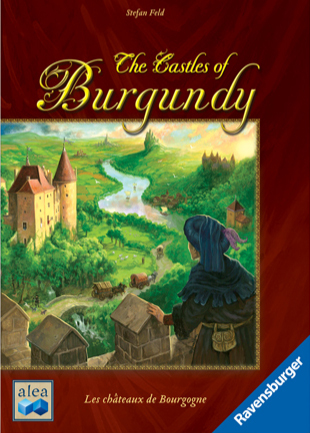 Castles of Burgundy. It’s the type of game I could keep playing over and over again. I just love the mechanics, though I wish it was more thematic.
Castles of Burgundy. It’s the type of game I could keep playing over and over again. I just love the mechanics, though I wish it was more thematic.
CR: How big is your game collection?
To be honest, it’s fairly modest. I generally don’t buy a game unless I intend to play it at least 10 times. I think I’ve got around 30-40 games, though with so many great games constantly coming out and all the Kickstarters I’ve backed recently, I’m sure that number will be much different this time next year…
CR: What is your favorite type of game to play?
Lately I tend to be leaning more toward medium weight Euro games with minimal luck. I also love tile placement games, and I’m a big fan of dice games too, just as long as there are creative ways to mitigate the die roll.
CR: How do you feel about Monopoly?
Hmm, well that’s always a fun question! I remember playing it when I was a kid and semi-enjoying it, but I haven’t gone anywhere near it in about 20 years. I think there’s still obviously a market for it, but I always get annoyed when people who aren’t gamers automatically think of Monopoly when the discussion of board games are brought up.
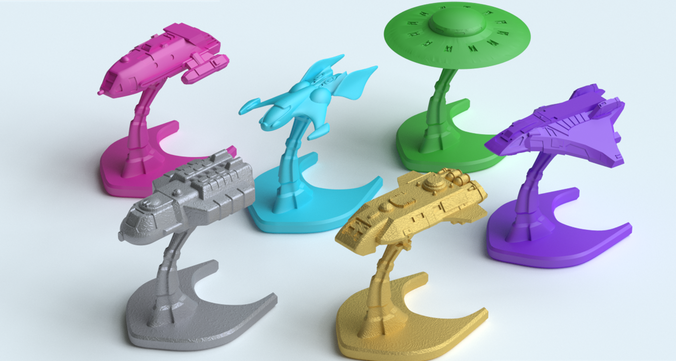
On Tau Ceti
CR: Tau Ceti is the inaugural title from Outer Limit Games, which is a mammoth undertaking given its 4X / sandbox nature. What prompted you to lead off with such a detailed endeavor?
We get asked this a lot, and I think the only answer is that we knew that we wanted our first game to make a bigger impact. It’s truly opposite of how most designers / publishers start out, and it’s certainly far more challenging and risky to start with a huge game like Tau Ceti. Though we’re not traditional in how we approach things. Ultimately Tau Ceti was a game we had envisioned for a while, so we felt inspired to move forth with it and just give it our all.
CR: Which aspect do you feel helps best set Tau Ceti apart from so many other 4X games out there?
 Definitely its cooperative nature. It’s really the only non scenario-driven sci-fi 4X cooperative game, even though it’s also competitive. You’re trying to score Galactic Points for your alien race and win in that respect, but you’re also working together with other alien races to resolve crises for the greater good of everyone. Additionally, the antagonist, for the most part, are the planetary crises, which occur every round (“Cetian Cycle”). So I think that also sets it apart from many other 4X games where you’re trying to solely defeat another faction or character.
Definitely its cooperative nature. It’s really the only non scenario-driven sci-fi 4X cooperative game, even though it’s also competitive. You’re trying to score Galactic Points for your alien race and win in that respect, but you’re also working together with other alien races to resolve crises for the greater good of everyone. Additionally, the antagonist, for the most part, are the planetary crises, which occur every round (“Cetian Cycle”). So I think that also sets it apart from many other 4X games where you’re trying to solely defeat another faction or character.
CR: On that same note, one of the mentioned selling points to Tau Ceti is that you can tweak the gameplay to play up or down certain styles and victory conditions. Can you elaborate on how that works?
Our developer / co-designer Joe Pilkus, added something called the Tau Ceti Crisis Timers, which players may choose to incorporate before a game begins. There are four different timers; two of them result in all players winning, and the other two result in all players losing. For example, one of the timers states that all players lose if all Crisis tokens of one type are in play at the end of a Cetian Cycle. So these add a cooperative nature to the game, and allow for more interesting end game conditions.
Additionally, players can choose to play a Full or Extended game based on the standard end game condition of playing through a number of rounds. A Full game lasts 8 rounds, and an Extended game lasts 10 rounds, with an additional two variable rounds, offering up to a full 12.
CR: Each of the game’s unique factions comes with its own backstory on why it’s part of the fight for the sector. When during the design process were the various factions added?
I think we originally started out with five factions, and we ended up adding a sixth one based on the need to have six types of resources and skill sets in the game. We wanted everything to be balanced, with each faction having a unique skill set / comparative advantage. This seemed to all fall into place about six months into the design phase, and from that point forward we just continued to develop each faction from a thematic standpoint.
CR: The game touts a lot missions and events to partake in. Do you have a particular favorite or one that stands out as particularly memorable?
I personally love the Interplanetary Missions because of their sandbox nature. They are a fun way to earn a quick buck, or as we call it in the game, TAU. One of my favorites is a Transport mission that requires you to “deliver Zorhkonian Coffee from Zorhkon to Xuno, as demand for it has increased on Xuno due to the Xunon’s recent decline in productivity.” Zorhkonian Coffee started as a joke on the Kickstarter comment feed during the campaign, and everyone just went crazy with it, so we decided to incorporate it into the game. It’s sort of pop culture in the Cetian universe now.
CR: Speaking of Kickstarter, the Tau Ceti relaunch was an overall success, but throughout the course of it you admitted there were a number of challenges along the way to make it happen. What was the biggest challenge to making Tau Ceti a reality, and why?
I think the biggest challenge with the relaunch was trimming the game down to a point where we could significantly reduce the funding goal while making sure that the game didn’t feel like it was missing anything from the start. We were forced to look at everything in the game objectively, which for a game designer can be challenging. For example, reducing the amount of punchboard sheets and die cuts required us to rework some of the design elements in the game, but that ultimately led to a more streamlined experience.
All in all, we pretty much updated or modified everything in the game and ended up with a cleaner and leaner version, which was necessary because we needed to get our goal down to a certain range as a first-time project creator.
CR: Tau Ceti seems to be a universe primed for revisiting in future games. Do you have any plans to revisit these places down the line?
Yes. We want to continue to the story of the Tau Ceti universe, chronologically, in a way that will welcome an expansion and allow for deeper thematic experiences. We already have a number of ideas in the works which we will incorporate into one big expansion.
CR: Finally, since we all have our preferences, we’d like to know: of the four branches of a 4X game (explore, expand, exploit, exterminate), which focus tends to draw you in the most?
Great question! I’ve always been the Explore type. When I was a kid I used to wonder in the woods, make forts, and go exploring. So that’s probably the “X” that resonates most with me. I love not knowing what I’m going to encounter; surprises build anticipation and a bit of tension, and those are feelings I love to get when playing a game.
Tau Ceti certainly seems like a happening place these days, what with a bunch of disparate races all congregating in the same star system, planetary happenings on a daily basis, and a never ending degree of intrigue thanks to all these mysterious outings…
…or, in other words, the perfect place to vacation!
Yes, we’re happy to report that in conjunction with the Tau Ceti Department of Tourism and Water Reclamation (it’s a long bureaucratic story), we’re happy to be offering up a free all expenses paid trip to visit the new homeworlds of a half dozen civilizations formerly in decline.
Why stay on Earth? You’ve seen it all at this point anyway. With our various partners, we’ll make sure your trip through the Milky Way is milky smooth, and when you get to Tau Ceti*, you’ll be able to spend time learning all about a truly multicultural solar system.
What’s there to lose – besides a good time?!? Enter now for the trip of several lifetimes!
*No providers or partners involved in this contest are liable for anything that should happen to you between the time you leave Earth and arrive at Tau Ceti. This includes but is not limited to: asteroids, meteors, gaseous entities, gaseous anomalies, sudden black holes, disruptions in the space-time continuum, marauders, disgruntled self-aware robots, plasma leaks, accidental exposure to space, or any and all side effects from encountering alien life forms.
Photo Credits: Tau Ceti cover and photos by Outer Limit Games.

